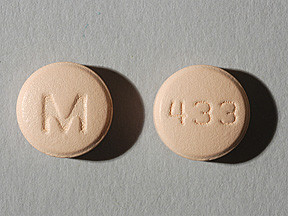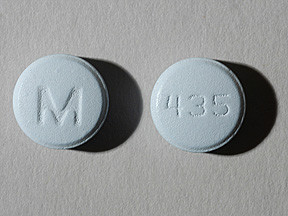BUPROPION - ORAL
PHONETIC PRONUNCIATION: (bue-PROE-pee-on)
COMMON BRAND NAME(S): Wellbutrin
GENERIC NAME(S): bupropion HCl
Uses
USES: Bupropion is used to treat depression. It can improve your mood and feelings of well-being. It may work by helping to restore the balance of certain natural chemicals (neurotransmitters) in your brain.
How to use BUPROPION - ORAL
HOW TO USE: Read the Patient Information Leaflet and Medication Guide available from your pharmacist before you start using bupropion and each time you get a refill. Consult your doctor or pharmacist if you have any questions. Take this medication by mouth, with or without food, usually three times daily. If stomach upset occurs, you may take this drug with food. It is important to take your doses at least 6 hours apart or as directed by your doctor to decrease your risk of having a seizure. Do not take more or less medication or take it more frequently than prescribed. Taking more than the recommended dose of bupropion may increase your risk of having a seizure. Do not take more than 150 milligrams as a single dose, and do not take more than 450 milligrams per day. Your dosage is based on your medical condition and response to therapy. Your dose may be slowly increased to limit side effects such as sleeplessness, and to decrease the risk of seizures. To avoid trouble sleeping, do not take this medication too close to bedtime. Let your doctor know if sleeplessness becomes a problem. Use this medication regularly in order to get the most benefit from it. To help you remember, use it at the same times each day. Do not stop taking this medication without consulting your doctor. Some conditions may become worse when the drug is suddenly stopped. Your dose may need to be gradually decreased. It may take 4 or more weeks before you notice the full benefit of this drug. Continue to take this medication as directed by your doctor even after you feel better. Talk to your doctor if your condition does not improve or if it worsens.
Side Effects
Precautions
Interactions
Overdose
Images
Reviews
Faq for BUPROPION - ORAL
Bupropion - Oral is primarily used to treat depression and also helps to prevent seasonal affective disorder (SAD) and manage nicotine addiction (as part of a comprehensive smoking cessation program).
Bupropion - Oral works by affecting certain chemicals in the brain that are associated with mood and addiction. It increases the levels of dopamine and norepinephrine, thereby improving mood and reducing cravings.
Bupropion - Oral can be safe for most people when taken as prescribed by a healthcare professional. However, it may not be suitable for individuals with certain medical conditions or those taking specific medications. It is important to discuss your medical history and current medications with your doctor before starting Bupropion - Oral.
Bupropion - Oral may start working within 1 to 2 weeks, but the full therapeutic effects may take up to 4 to 6 weeks to be observed. It is essential to continue taking the medication as prescribed, even if you do not notice immediate improvements.
The common side effects of Bupropion - Oral include dry mouth, headache, nausea, vomiting, constipation, trouble sleeping, dizziness, and increased sweating. These side effects are usually temporary and may go away as your body adjusts to the medication.
Yes, Bupropion - Oral can potentially cause weight loss in some individuals. It is believed to affect appetite and metabolism, leading to decreased food intake and increased energy expenditure. However, not everyone experiences weight loss, and individual responses may vary.
It is generally recommended to avoid alcohol while taking Bupropion - Oral because alcohol can increase the risk of side effects such as seizures. Additionally, alcohol may also interfere with the effectiveness of the medication, particularly in treating depression.
Warning
WARNING: Bupropion is an antidepressant used to treat a variety of conditions, including depression, other mental/mood disorders, and smoking cessation. Antidepressants can help prevent suicidal thoughts/attempts and provide other important benefits. However, studies have shown that a small number of people (especially people younger than 25) who take antidepressants for any condition may experience new or worsening depression, other mental/mood symptoms, or suicidal thoughts/attempts. Therefore, it is very important to talk with the doctor about the risks and benefits of antidepressant medication, even if treatment is not for a mental/mood condition. Tell the doctor right away if you notice new or worsening depression/other psychiatric conditions, unusual behavior changes (including possible suicidal thoughts/attempts), or other mental/mood changes (including new/worsening anxiety, panic attacks, trouble sleeping, irritability, hostile/angry feelings, impulsive actions, severe restlessness, very rapid speech). Be especially watchful for these symptoms when a new antidepressant is started or when the dose is changed. If you are using bupropion to quit smoking, stop taking bupropion and contact your doctor right away if you experience any of the symptoms listed above. Tell your doctor right away if you have any of these symptoms after stopping treatment.
Disclaimer
IMPORTANT: HOW TO USE THIS INFORMATION: This is a summary and does NOT have all possible information about this product. This information does not assure that this product is safe, effective, or appropriate for you. This information is not individual medical advice and does not substitute for the advice of your health care professional. Always ask your health care professional for complete information about this product and your specific health needs.





No Reviews Yet